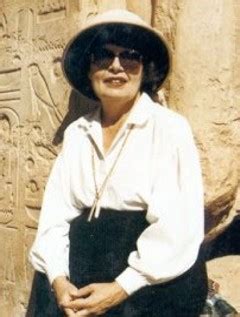A Quote by Robert Haugen
Behaviorists tell us that we tend to overweight and overreact to the most recently received information. If we do, we will find that the information that we thought was so important becomes tempered, and reduced in significance, by new and related information that follows.
Related Quotes
Healthy areas that are richest in information are those areas in the wild where we can get all the information that's available to us within our human hearing range. The most valuable information throughout human evolution has been faint sounds. We tend to think in our modern world that if it's loud, if it grabs our attention, it's important. We get a lot of that in advertising. But in nature, it's the faintest sound that's important; it has determined, in the past of our ancestors, perhaps, if they will live or die. Faint sounds are the earliest clues of newly arriving information.
Well, there's a question as to what sort of information is important in the world, what sort of information can achieve reform. And there's a lot of information. So information that organizations are spending economic effort into concealing, that's a really good signal that when the information gets out, there's a hope of it doing some good.
Well, there's a question as to what sort of information is important in the world, what sort of information can achieve reform. And there's a lot of information. So information that organizations are spending economic effort into concealing, that's a really good signal that when the information gets out, there's a hope of it doing some good...
I used to be skeptical when educators and technologists predicted that we may be entering a new era of oral culture, in which audible information will be at least as important as visible information. Now that I have adopted into my own daily life a device that makes music and spoken-word files easy to access from anywhere, I have tempered my skepticism.
Digital technologies are setting down the new grooves of how people live, how we do business, how we do everything--and they're doing it according to the expectations of foolish utopian scenarios. We want free online experiences so badly that we are happy to not be paid for information that comes from us now or ever. That sensibility also implies that the more dominant information becomes in our economy, the less most of us will be worth.
Data isn't information. ... Information, unlike data, is useful. While there's a gulf between data and information, there's a wide ocean between information and knowledge. What turns the gears in our brains isn't information, but ideas, inventions, and inspiration. Knowledge-not information-implies understanding. And beyond knowledge lies what we should be seeking: wisdom.
Normally if you add information to information, you have more information. In case of my art, I destroy information, I would say, because the image is disturbed by the writings. In a way, they become pure imagery. For me it's really fun because it's an idealistic approach to images, to just play around with information and see what's happening.
Information wants to be free.' So goes the saying. Stewart Brand, the founder of the Whole Earth Catalog, seems to have said it first.I say that information doesn't deserve to be free.Cybernetic totalists love to think of the stuff as if it were alive and had its own ideas and ambitions. But what if information is inanimate? What if it's even less than inanimate, a mere artifact of human thought? What if only humans are real, and information is not?...Information is alienated experience.



























